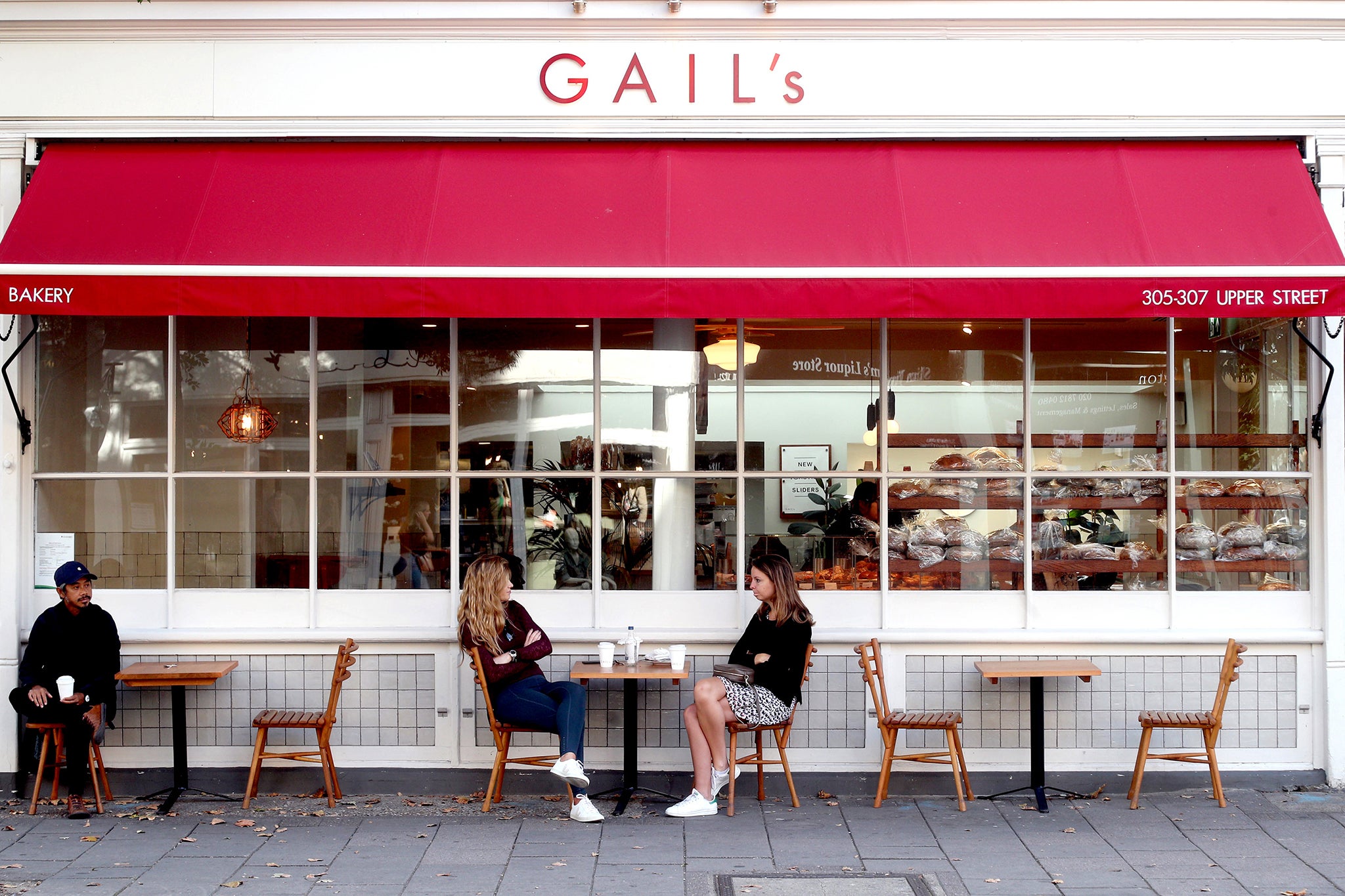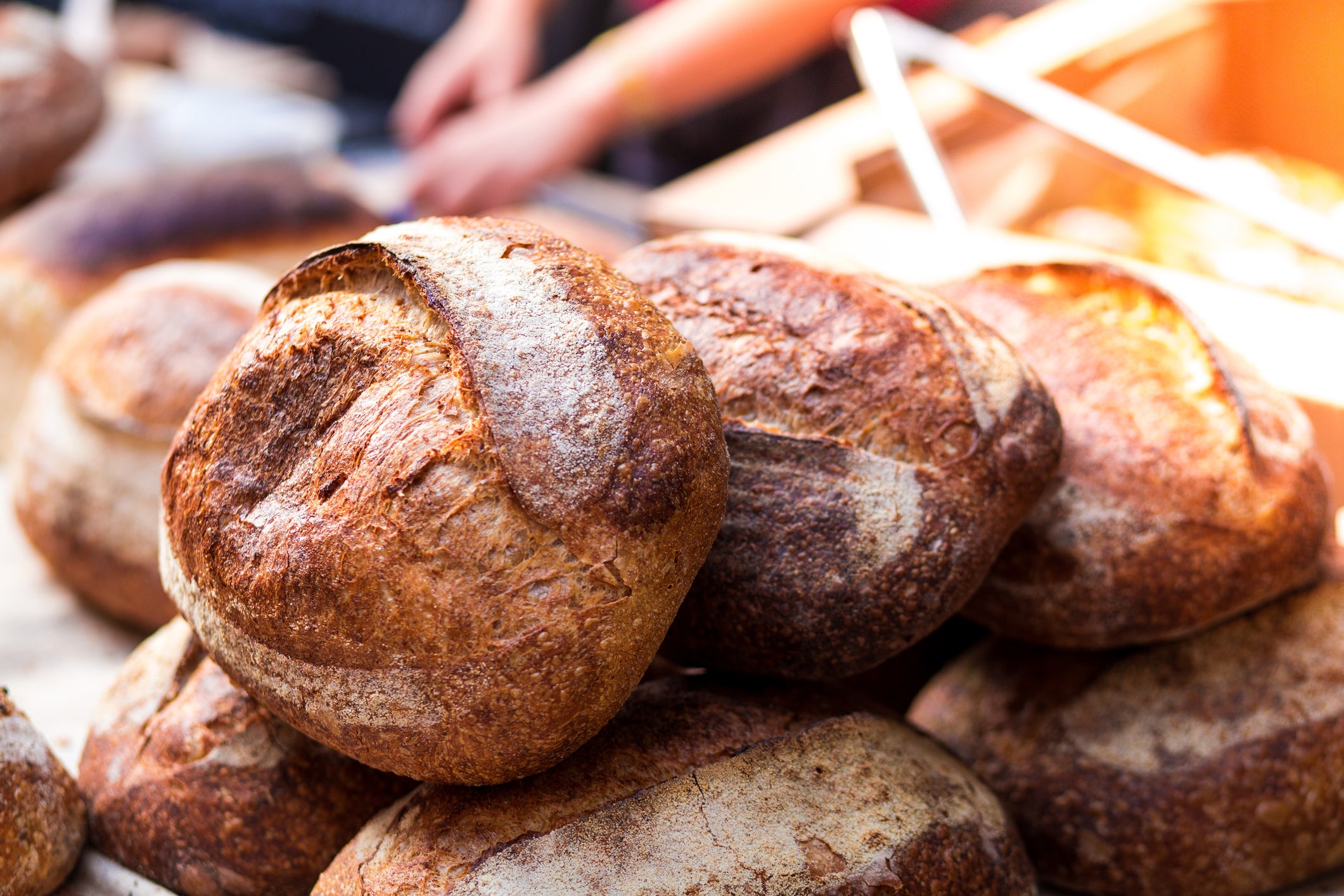How Gail’s took over Britain and made paying a fiver for a loaf no big deal
Britain’s boom in artisanal bakeries is seeing us queue at dawn and pay a premium for our daily bread, but behind the rise of sourdough lies a deeper story of gentrification, ultra-processed foods and an ever-widening health divide between the haves and have-nots, writes Hannah Twiggs


Bread is as British as a cup of tea, a Sunday roast or a rainy summer holiday, woven into everything from breakfast to pudding. Whether it’s the comforting crunch of toast drenched in never-enough salted butter, the frugal joy of bread and butter pudding or the humble bacon sandwich – where even that much-derided processed white-sliced can hold its own – bread is a constant, ever-present staple in British life.
It’s no wonder, then, that in recent years, Britain has experienced something of a bread renaissance. After decades of industrialised, supermarket fare, we’re rediscovering the joys of “real bread” – the kind that crackles when you slice it and leaves a dusting of flour on your fingers.
Across the country, in certain postcodes, Brits are queueing at the crack of dawn, ready to fork over £5 for a loaf that’s heftier than a dumbbell.
We’ve gone mad for the stuff – and having a Gail’s or similar opening in your neighbourhood has become the ultimate sign that your neighbourhood is on the up.
Well, not in Walthamstow, apparently. Residents are up in arms over the impending arrival of a new Gail’s bakery on their hallowed high street. The rebellion has been akin to discovering someone’s put pineapple on pizza.
Meanwhile, in the genteel seaside town of Worthing, the arrival of another Gail’s has sparked a debate that’s threatening to tear the place apart. Some welcome the bakery as a sign of much-needed progress, while others see it as a harbinger of gentrification, posed to strip away the town’s local businesses. And all this over a loaf of bread.
As well as the slap of Marmite on toast in the morning, we’re a nation that adores its sandwiches – 11.5 billion of them a year, according to the British Sandwich & Food to Go Association. And while many of these are the sad, plasticky, pre-packaged affairs we’ve all suffered at some point, they’re ubiquitous.
Almost everyone in the UK has a firm opinion on the correct way to make a ham and cheese sarnie or a bacon butty. How many foods can claim that kind of cultural heft? Even the grilled cheese sandwich, that trashy American import, has taken off here, probably because it’s basically a posh toastie, and who doesn’t love that?

Bread has even ascended to the hallowed halls of fine dining. Across the country, chefs are dedicating entire courses to it, crafting loaves so exquisite they might as well be served under a glass cloche. What was once offered for free is now commanding upwards of a fiver as a starter, and we’re lining up to pay it. Whether it is Slovenian potato bread or dulse seaweed sourdough, bread has officially become a luxury item, which would be hilarious if it weren’t so painfully true.
This lovingly crafted, artisanal bread worship has been partly born out of a rejection of mass-produced, ultra-processed breads that dominate the supermarket shelves. The Chorleywood bread process, a 1960s innovation, revolutionised bread-making by making it faster, cheaper and softer. But it also turned bread into a chemically enhanced imposter, full of additives and preservatives – a fluffy white lie (and sometimes a multi-grain one too) that we’ve been swallowing for years.
These ultra-processed loaves are the poster children for everything that’s wrong with our food system. They’re cheap and convenient, but they come at a cost – both to our health and our palates. That brown sliced ham salad sandwich? Yep, not so healthy after all.
So where does that leave us? Stuck between a rock-hard baguette and a soggy supermarket loaf, it seems
Ultra-processed foods, of which factory-made bread is a prime example, have been linked to a host of health issues, from obesity to heart disease. And yet, for many people, the truth is that it is the only bread they can afford. The divide between those who can splash out more than £5 on a freshly made potato and rosemary sourdough from Gail’s and those who have to make do with a 45p white-sliced couldn’t be starker.
Bread, once the great leveller, has become a marker of class.
This is where the bread renaissance leaves a sour taste. On the one hand, we’re celebrating a return to traditional methods, to bread that’s made with care; that respects the ingredients and the craft. On the other hand, this artisanal bakery trend highlights the growing gap between the haves and the have-nots. It’s hard to ignore the fact that while some of us are happy to pay a premium for what we consider “real” bread, others are stuck with the ultra-processed alternatives because that’s all they can afford.
So where does that leave us? Stuck between a rock-hard baguette and a soggy supermarket loaf, it seems. There’s no denying the appeal of a beautifully crafted sourdough, nor the pleasure of discovering a new bakery that takes pride in its product. But as we celebrate the bread renaissance, the daily reality is not a luxury many can afford. The challenge ahead is to bridge the gap, to find ways of making good, healthy bread accessible to everyone.
Some bakeries are stepping up to the challenge, offering subsidised loaves or “real bread for all” schemes. Others are working to educate the public about the benefits of traditional bread making, which can be done at home and the dangers of ultra-processed foods.
But for now, if you’re planning to visit your local bakery this weekend, you’d better set your alarm. Good things come to those who wait – and in Britain, we’re more than happy to wait in line for our daily bread. Just don’t forget: it’s only bread.
It should nourish us all, not divide us. But then again, when did anything in this country ever rise without a good bit of tension? After all, we’ve managed to turn even the humble loaf into a battleground.
Join our commenting forum
Join thought-provoking conversations, follow other Independent readers and see their replies
Comments



Bookmark popover
Removed from bookmarks